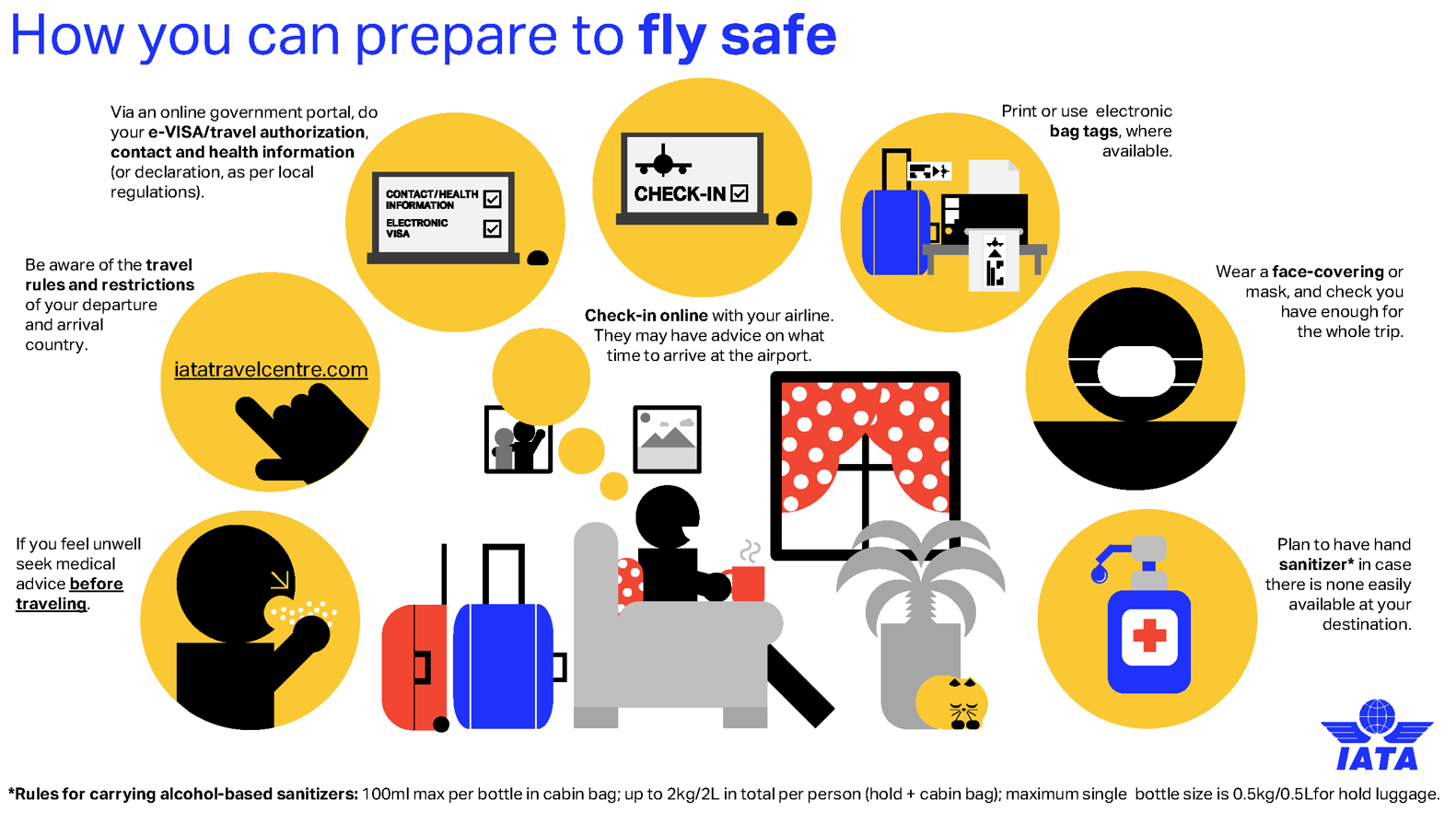FLY SAFE
The Most Important Travel Documents for your Trip
If you thought that passengers traveling with the incorrect documentation was a minor issue for the world’s carriers, think again. The 60,000 travelers turned back at destination or transfer points by immigration authorities each year cause stressful and frustrating situations for travelers. They also cost the world’s airlines a substantial amount of money in fines and associated costs The COVID-19 pandemic hasn’t helped the situation either. Whether it is rules implemented at a short notice, vaccination or testing papers presented in the wrong format or language, passengers and airlines are struggling to keep up with ever changing requirements. This is why it’s more important than ever to be well prepared for your trip and to make sure that you have the correct travel documents, especially when traveling internationally.
What Documents Do you Need when Traveling to Another Country?
The travel and health documents required for your trip can vary based on your itinerary and personal situation. The following documents will be useful for any trip:
Passport
Travel Visa
National ID Card
Proper identification is the foundation of international travel. As a result, you should ensure to always have an official identification document with you. You can even consider having multiple documents such as your passport, national ID card or driver’s licence. If you don’t feel comfortable bringing several documents, you can consider bringing copies. These can be especially useful if you lose your passport and must take steps to prove your citizenship at your country’s embassy or consulate. When traveling abroad, it is also essential to have a valid passport. Many travellers don’t realize that most countries apply rules in regard to the passport expiration date. For most countries, visitors must have a valid passport for six-months after they plan to arrive at their destination, however this period can vary. Either way, if you are planning a trip abroad, always make sure to check the passport validity requirements and the expiry date of your passport. This will help avoid unfortunate issues at the airport or at immigration at your destination country.
COVID-19 Travel Documents
Health travel documents are not new to international travel. Certain countries have long lasting entry requirements such as yellow fever vaccination certificates, however this was limited to specific countries whereas the COVID-19 travel document entry requirements have been enforced by the majority of countries around the world.
Travel Itinerary Details
Flight ticket details, accommodation reservations, car rental confirmation, all are important for your trip. Keeping up with all your reservations can be difficult and having copies of your itinerary and reservations with you can make your trip go much smoother. It can help sort out any issues during check-in at the airport or hotel and it’s a simple way of helping you keep track of your travel plans. You can even set yourself a reminder for a COVID-19 test that is often required within 72- or 48-hours before departure along with the address of the testing centre closest to your hotel.
Medical and Travel Insurance Proof
Unforeseen situations can occur and they can be especially stressful when you are abroad. That is why travel insurance is important. Travel insurance can be summed up in two main categories:
1. Insurance for medical expenses and
2. Insurance for trip cancelations.
It is important to have a copy of your travel insurance certificate with you. Insurance companies often provide a printer-friendly card or summary that includes emergency contact details which you should always have with you or you can use their mobile app so that you have all the required information at your fingertips. With all the interruptions and changes in international travel caused by COVID-19, it’s also recommended to you contact your insurance provider to verify what exactly is covered under your insurance plan.
Other Documents
Since the start of the COVID-19 pandemic several countries have introduced passenger locator forms which must be presented at check-in or at immigration. After filling the form, travelers are often provided with a QR code or a reference number. Other documents could also be required, that is why it is always important to check what is required for your trip when planning your holiday and ideally verifying the requirements once again closer to your departure date as entry rules and regulations change on a daily basis.
